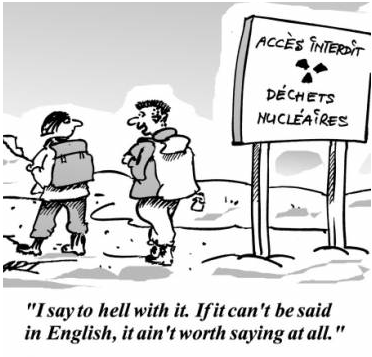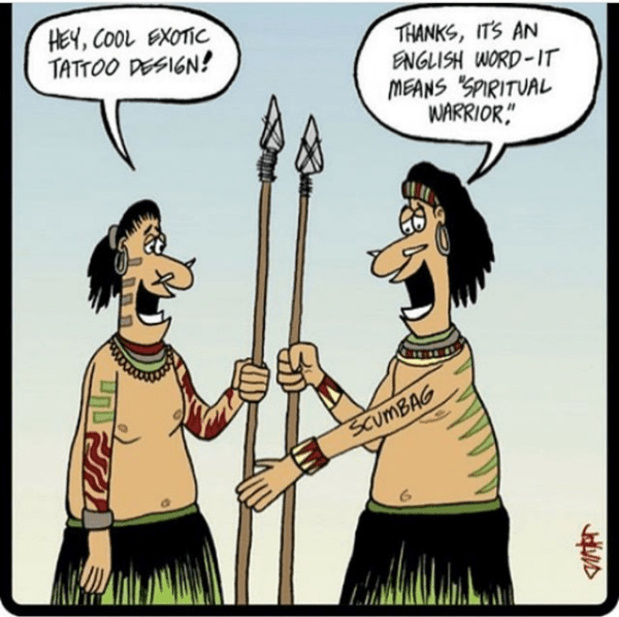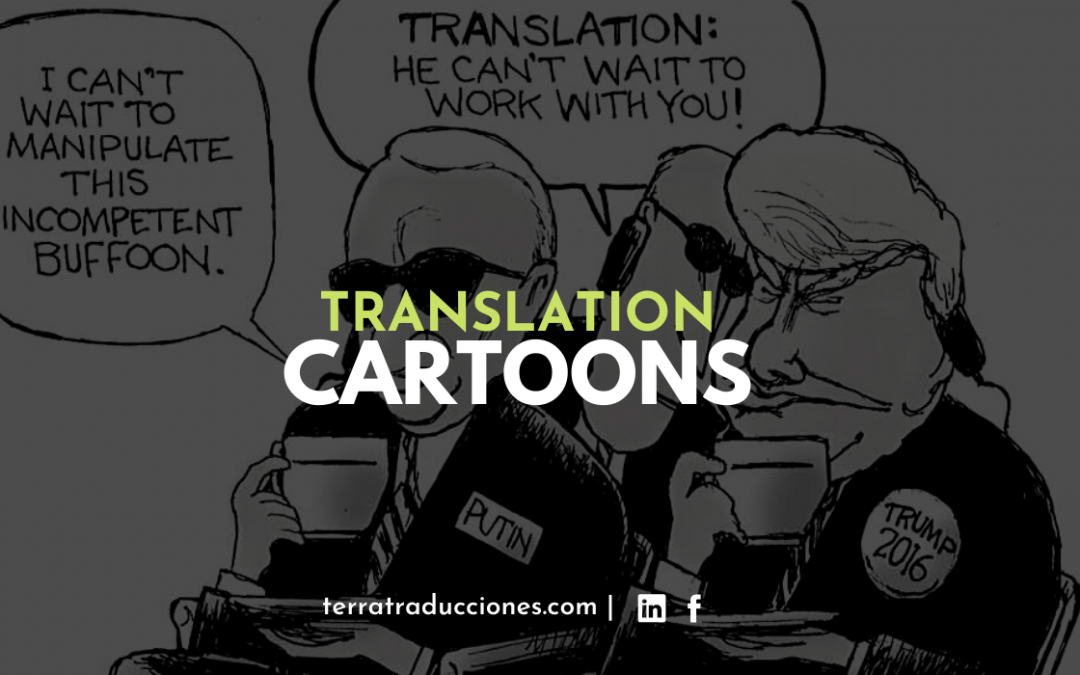Throughout history, cartoons have played a significant role in summarizing complex and divisive issues in just a few words. Cartoons help facilitate critical thinking, interpretation and analysis in an entertaining way. No topic whatsoever can escape the power of cartoons, not even translation.
The significance of translation in our daily lives is extensively multidimensional, just as analyzing cartoons is significantly more complex than most people would acknowledge.
So, why is translation important? To answer that question, here are two illustrations that will help you understand that, one way or another, we all need a translator in our life.
Translation Cartoon #1: “I say to hell with it. If it can’t be said in English, it ain’t worth saying at all”.

Image 1: “I say to hell with it. If it can’t be said in English, it ain’t worth saying at all” by BART.
Unwillingness to do a proper translation (or to learn a different language) could lead to tragic consequences. This cartoon depicts two people, seemingly English-speaking tourists in a French-speaking land, unknowingly entering a nuclear wasteland on their way to a sure death by radiation because they decided to ignore the warning sign, which is written in French. The sign reads “accès interdit, déchets nucléaires,” which translates to “access prohibited, nuclear waste.”
The message of the cartoon is somewhat straightforward. The use of resources such as exaggeration and labeling are used to a minimal extent in the sign (the slightly exaggerated size and label of nuclear danger, but that’s about it.) Instead, the cartoon relies on the use of symbolism to convey the message: the tourists represent the ignorance of those who believe that, only by speaking English, they should be able to easily communicate around the world.
The artist uses an analogy to reflect, rather ironically, on how some native English-speakers mistakenly assume that theirs is a “universal language,” and thus, everywhere they go, English should be spoken. This is further encouraged by the caption: “I say to hell with it. If it can’t be said in English, it ain’t worth saying at all.” If the two characters had the will or curiosity to know what was written in the sign, the story would have concluded in a very different way.
Translation Cartoon #2: “I say to hell with it. If it can’t be said in English, it ain’t worth saying at all”.

Image 2: “Thanks, it’s an English word – it means spiritual warrior” by Jon Carter.
It really is funny how messages can easily get lost in translation.
Two men are talking in the cartoon. Based on their appearance we can assume they are tribal men from a non-western part of the world. The symbolism here can be noticed through the marks on their body and jewelry, especially on the word scumbag, written on his arm as a contemporary western tattoo. The tattooed word is exaggerated in size, so it can be easily noticed. It takes a lot of attention from the viewer and can be seen as a clear label, even before reading the dialogue.
The cartoonist is making an analogy between how western societies mark themselves without knowing the meaning of the tattoo, and how tribes have been honoring ancient customs such as the Egyptian and African traditions of marking themselves according to their ages and socio-economic positions.
The word ‘scumbag’ tattooed by the tribal man has a meaning in a language he does not appear to understand. He understands the complete opposite to what the word actually means. It is an insult. It describes someone who is dirty or despicable. This comparison is made ironically because people commonly tattoo words in other languages or dialects to feel more cultured or spiritual and it turns out to be a dirty, vulgar or bad word.
Just as cartoonists use symbols to stand for larger ideas, being a translator involves more than translating words. We share your ideas with the world. Hence, highly skilled translators are key. We will help you find the right jargon and usage to communicate successfully with different audiences in the target language.
If you require any translation services call on the professionals and get in touch with us today!
Follow us on Facebook (@TerraTraduccionesMx) for more tips and articles about how to improve your English.


Recent Comments